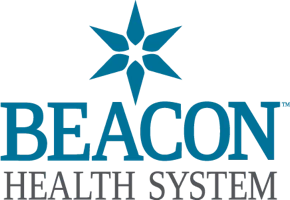Ambulatory Surgery Centers (ASCs) are rapidly gaining popularity, yet ASC leaders are growing increasingly concerned about looming financial risks, especially when it comes to claim reimbursements.
Despite the dramatic expansion of allowed procedures, ASCs now face declining reimbursement rates and increased financial pressures that threaten the ASCs’ long-term sustainability.
For ASCs that process specialty claims — including those for Veterans Administration, Workers’ Compensation, Out-of-State Medicaid, and Motor Vehicle Accident (MVA) cases — the financial challenges can be even more intense.

Handling specialty and complex claims can be exhausting due to the intricate billing processes involved, placing a heavy burden on those managing revenue cycle tasks. These claims often come with more complicated demands from payers and have long payment delays. This situation strains the ASC’s revenue cycle team and tightens cash flow.
Ultimately, the center may lose revenue because the team simply can’t keep up with the time-consuming claim processing cycle or have the expertise to handle underpayments and denials.
Navigating the Complexity of Reimbursements
If you’re worried about reimbursements, you’re in good company. ASC leaders nationwide are sharing significant concerns about procedure reimbursements.
The challenges are growing due to more complicated billing and coding rules, stricter documentation requirements, and the ongoing gap between ASC and hospital reimbursement rates. These are some of the key factors that make managing reimbursements increasingly complex.
More Complex Billing and Coding Rules
With a wider range of approved procedures, ASC revenue cycle leaders are dealing with a more complicated billing and coding process. Every procedure comes with its own specific codes, documentation needs, and payer policies.
Mistakes can result in underpayments or denials, so it’s crucial to stay up to date with the latest coding guidelines. Keeping track of different fee schedules and making sure billing matches those rates is also key to getting the most reimbursement.
Increased Documentation Requirements
More complex procedures often require stricter documentation to prove medical necessity and meet payer guidelines, which can lead to a higher chance of denials.
Disparity in ASC vs. Hospital Reimbursement
Payers often set different reimbursement rates for the same procedure depending on where it’s done. For example, Medicare pays ASCs an average of only 55% of what hospital outpatient departments (HOPDs) receive for the same services.
To break it down, according to the ASCA, an HOPD might get $1,671 for an outpatient cataract surgery, while an ASC would only receive $964 for the same procedure.
Four Strategies for Mitigating the Impact of Declining ASC Reimbursement Rates
ASC leaders must take proactive steps to maintain financial stability while continuing to provide high-quality care. Here are four strategies ASC leaders can implement to mitigate declining reimbursement rates:
- Negotiate Stronger Contracts: Strong revenue capture and reimbursements start with strong contracts. When preparing for contract negotiation, ASCs should analyze payer data and benchmark against industry standards. It’s important to clearly articulate the value the ASC brings to payers, including cost savings and high-quality outcomes.
Also, be sure to regularly review contracts, identify underperforming agreements, and engage in negotiations with a clear strategy for achieving better terms.
- Partner with an Expert that Has Advanced Technology: To generate optimal financial and operational outcomes, ASCs need to adopt revenue cycle tech built for today’s ever-changing healthcare environments. Intelligent automation is particularly invaluable for complex claim management.
Frankly, building and managing this advanced technology is cost-prohibitive for many healthcare providers. That’s why it’s wise to work with an expert who has systems that streamline workflows, alleviate the administrative burden on your staff, reduce errors, and improve cash flow.
Also, make sure the RCM partner you choose integrates data analytics to identify bottlenecks, reduce denials, and enhance overall financial performance.
- Train Your Revenue Cycle Staff: A key reason that ASCs fail to capture the revenues they’re owed is that in-house revenue cycle staff lack adequate knowledge of the necessary rules, regulations, and procedures for accurate claim processing and billing. As guidelines frequently change, staff must receive ongoing training to ensure effective performance.
- Don’t Treat All Claims the Same: Lumping complex claims processing with simpler claims can overwhelm your in-house revenue cycle team, leading to errors, higher denial rates, and lost revenue.
Complex claims require specialized expertise that few are equipped to handle; these claims need dedicated attention from experts thoroughly versed in specialty claim nuances. This is why many ASCs outsource complex claims to a specialty revenue cycle provider far better equipped to handle these cases.
Our Top Tip for Stronger Financial Outcomes for ASCs
Partnering with the right revenue cycle expert for your ASC can help minimize denials and generate maximum reimbursement. EnableComp can help your ASC identify and prevent claim reimbursement denials, perform root-cause analysis, and rework even the most complex claims to enhance revenue and yield.
Our proprietary intelligent automation platform streamlines and optimizes all your complex claims. There’s no need to invest in new technology: When you partner with EnableComp, you tap into our infrastructure of innovation and decades of expertise.
Contact us today to learn why leading healthcare organizations trust us for their revenue cycle needs. It’s your revenue — we’ll find it.





























